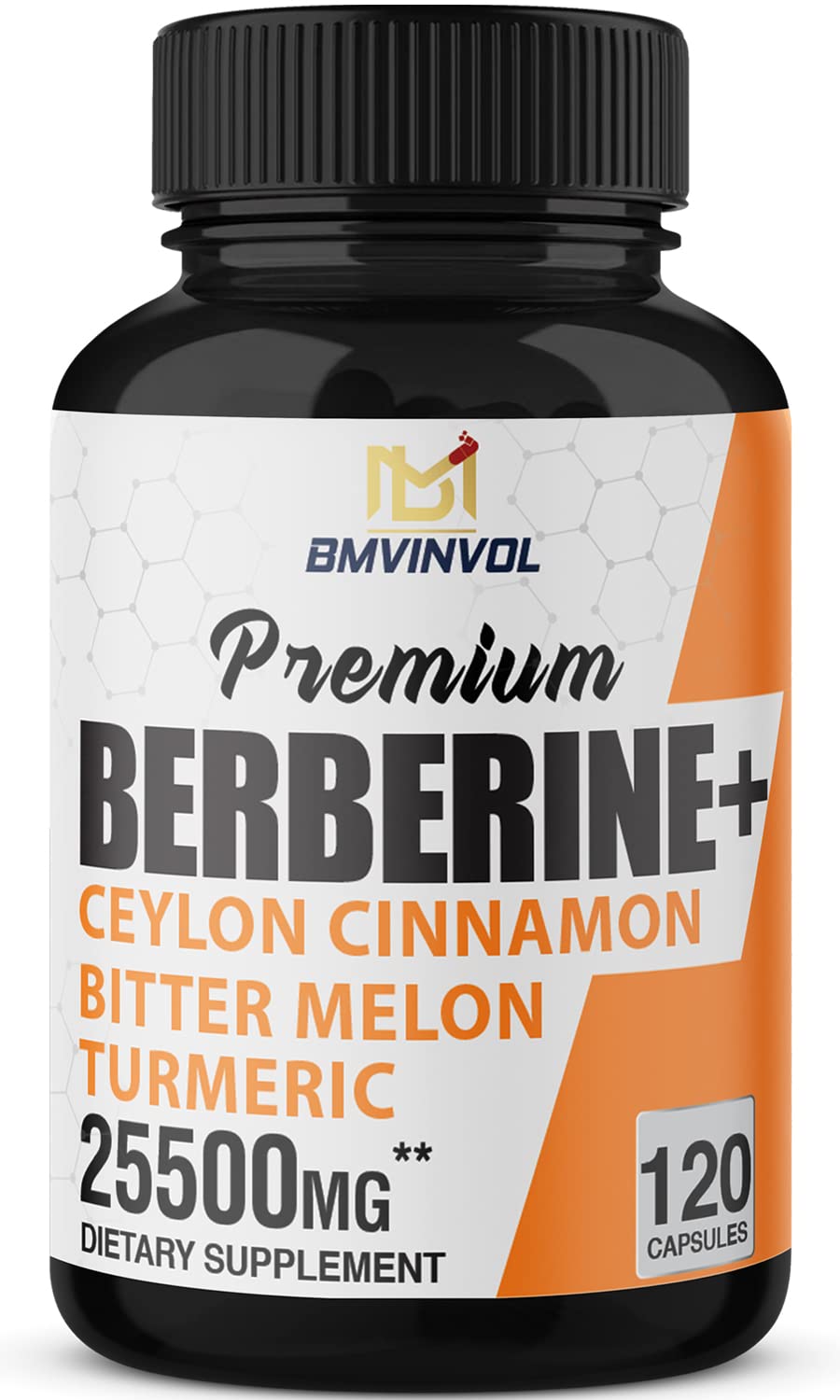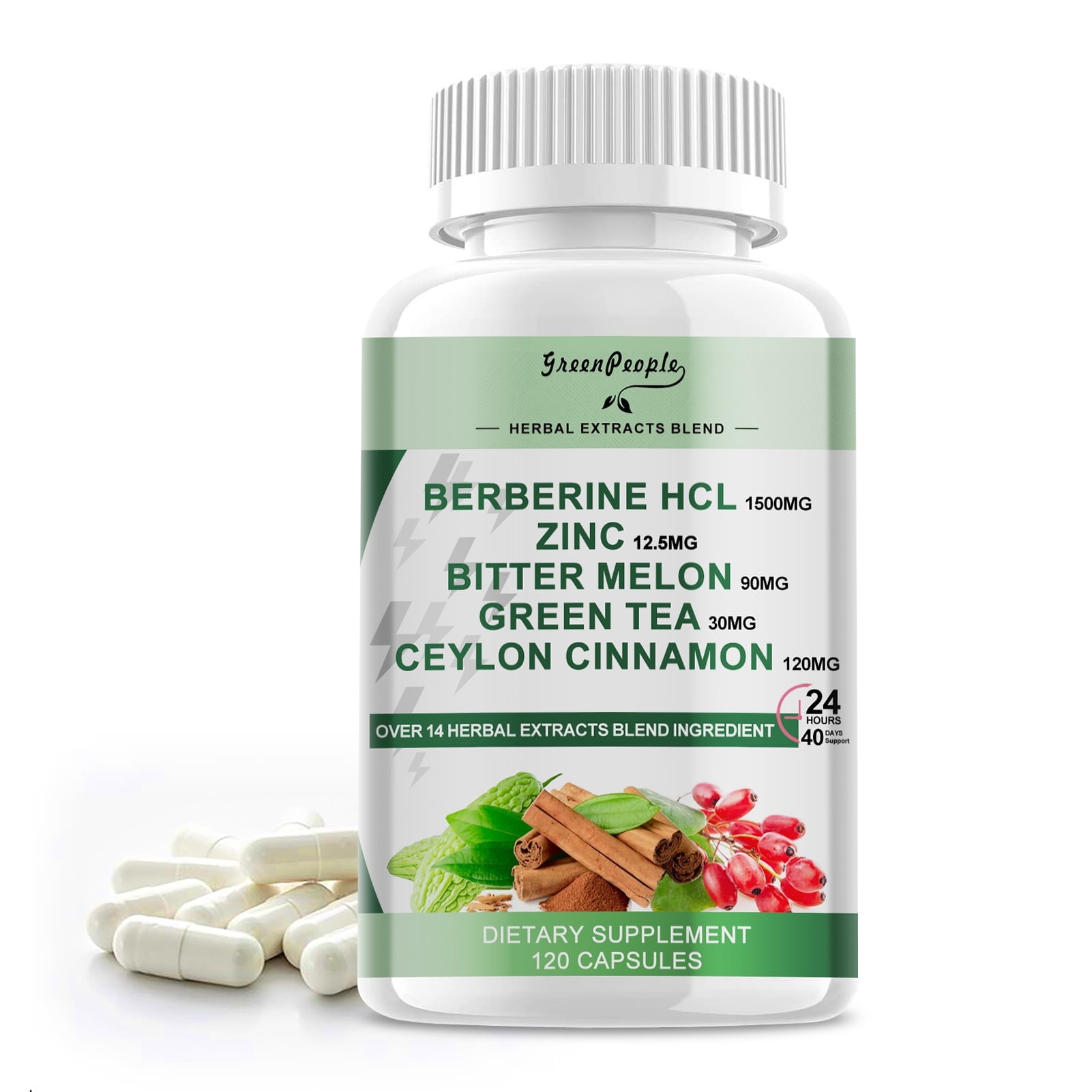Berberine With Ceylon Cinnamon And Bitter Melon

The relentless pursuit of natural solutions for managing blood sugar and improving metabolic health is driving significant attention towards combined nutraceutical approaches. Among these, the synergistic combination of berberine, Ceylon cinnamon, and bitter melon is gaining traction. Early research and anecdotal evidence suggest a potent effect on glycemic control, sparking both excitement and cautious optimism within the scientific and medical communities.
This article delves into the emerging science behind this triple-threat botanical blend, examining the individual roles of each component and the potential benefits – and risks – associated with their combined use. We will explore the evidence base supporting these claims, scrutinize the existing clinical trials, and consider the perspectives of experts in endocrinology and integrative medicine, offering a balanced and informed overview for those seeking to understand the role of these natural compounds in health management.
Individual Components: A Closer Look
Berberine: The AMPK Activator
Berberine, an alkaloid found in several plants, has long been used in traditional Chinese medicine. Its primary mechanism of action revolves around activating AMPK, a cellular energy regulator. This activation mimics the effects of exercise, improving insulin sensitivity, reducing glucose production in the liver, and promoting glucose uptake by cells.
Numerous studies have demonstrated berberine's efficacy in lowering blood sugar levels. A meta-analysis published in *Metabolism* showed that berberine was as effective as some oral hypoglycemic drugs in managing type 2 diabetes, exhibiting similar reductions in HbA1c levels.
Ceylon Cinnamon: The True Cinnamon
Ceylon cinnamon, often referred to as “true cinnamon,” differs significantly from the more common cassia cinnamon. It contains lower levels of coumarin, a compound that can be toxic to the liver in high doses, making it a safer option for regular consumption. Studies suggest that Ceylon cinnamon can improve insulin sensitivity and lower blood sugar by enhancing insulin signaling.
Furthermore, Ceylon cinnamon possesses antioxidant and anti-inflammatory properties. Research published in the *Journal of Nutritional Biochemistry* indicated that Ceylon cinnamon can improve lipid profiles and reduce oxidative stress, contributing to overall metabolic health.
Bitter Melon: The Insulin Mimetic
Bitter melon, a tropical vine, has a long history of use in traditional medicine for diabetes management. It contains several active compounds, including charantin and polypeptide-p, which exhibit insulin-like effects.
These compounds are believed to improve glucose uptake and reduce glucose production in the liver. A review published in the *Journal of Ethnopharmacology* concluded that bitter melon has significant potential as an adjunct therapy for diabetes, though more research is needed to fully elucidate its mechanisms of action and optimize dosage.
Synergistic Effects: The Power of Combination
The rationale behind combining berberine, Ceylon cinnamon, and bitter melon lies in the potential for synergistic effects. Each component works through different pathways to improve glucose metabolism, theoretically leading to a more pronounced effect when used together.
Limited studies have directly investigated the combination of all three ingredients. However, several studies have explored combinations of two, with promising results. For example, research combining berberine and bitter melon demonstrated a greater reduction in blood sugar levels compared to either ingredient alone.
The potential synergistic mechanisms include berberine's impact on AMPK activation, Ceylon cinnamon's enhancement of insulin signaling, and bitter melon's insulin-mimetic properties. This multifaceted approach could provide comprehensive support for glycemic control and overall metabolic health.
Clinical Evidence and Research Gaps
While the individual components have considerable research backing, the evidence supporting the combined use of berberine, Ceylon cinnamon, and bitter melon is still emerging. More rigorous, large-scale clinical trials are needed to confirm the synergistic benefits and determine optimal dosages.
Currently, most available evidence comes from smaller studies and anecdotal reports. These suggest potential benefits, but further research is critical to establish efficacy and safety definitively. Specifically, long-term studies are required to assess the sustained effects of this combination and identify any potential adverse effects.
One crucial area for future research is investigating the specific ratios of each ingredient that yield the most beneficial outcomes. Furthermore, studies should consider individual variations in response to these natural compounds, potentially identifying subgroups that might benefit most from this combination.
Safety and Precautions
While generally considered safe, berberine, Ceylon cinnamon, and bitter melon can cause side effects in some individuals. Common side effects of berberine include gastrointestinal distress, such as nausea, diarrhea, and constipation.
Ceylon cinnamon is generally well-tolerated, but excessive consumption of any cinnamon can potentially lead to liver problems, although this is more associated with cassia cinnamon. Bitter melon can cause abdominal discomfort and diarrhea, and it should be used with caution in individuals taking blood-thinning medications due to its potential to affect blood clotting.
It is crucial to consult with a healthcare professional before taking berberine, Ceylon cinnamon, and bitter melon, especially if you have underlying health conditions or are taking other medications. This is particularly important for individuals with diabetes, as the combination could potentially lead to hypoglycemia if not carefully monitored.
Expert Perspectives
Dr. Anya Sharma, an endocrinologist at *Mayo Clinic*, cautions, “While natural supplements can offer some benefits, it’s crucial to approach them with caution and under the guidance of a healthcare professional. The combination of berberine, Ceylon cinnamon, and bitter melon shows promise, but more robust clinical trials are needed to confirm its efficacy and safety. It is also important to ensure that supplements are sourced from reputable manufacturers to guarantee quality and purity.”
Dr. Ben Carter, an integrative medicine physician at *Cleveland Clinic*, adds, “I often incorporate botanical medicines into treatment plans, but only after a thorough assessment of the patient’s health history and current medications. The potential for synergistic effects is intriguing, but it’s equally important to be aware of potential interactions and side effects. The combination of berberine, Ceylon cinnamon, and bitter melon holds potential, but responsible and informed use is key.”
The Future of Natural Glycemic Control
The combination of berberine, Ceylon cinnamon, and bitter melon represents a potentially promising approach to natural glycemic control. However, it's crucial to remember that it's not a magic bullet and should not replace conventional medical treatment or lifestyle modifications.
As research continues to evolve, this botanical blend may find a place as an adjunct therapy for managing blood sugar levels and improving metabolic health. The key lies in responsible use, guided by healthcare professionals, and grounded in robust scientific evidence.
Ultimately, the future of natural glycemic control hinges on continued research, rigorous clinical trials, and a commitment to evidence-based practices. By embracing a balanced approach, we can harness the potential benefits of these natural compounds while ensuring patient safety and optimal outcomes.


















